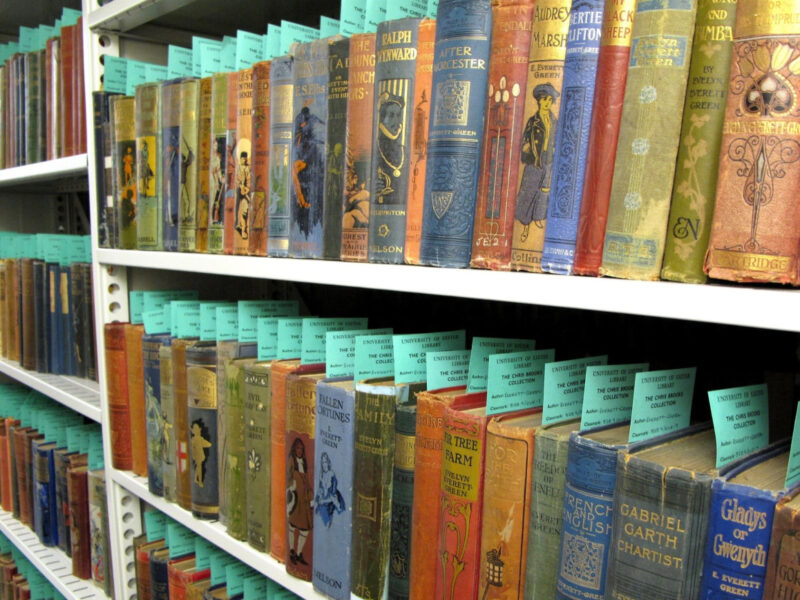
The University of Exeter Special Collections Team has been awarded Archive Service Accreditation. Archive Service Accreditation is the UK-wide standard for archive services. The award is a signifier of good practise and was given on the 22nd of November 2023. The assessment considers, amongst several criteria, the extent to which an archive team engages with the community around it and this latter aspect is something that the team has been particularly praised for.
Interim Head of Heritage Collections, Caroline Walter, stated that the team were “all incredibly proud” of the award, which is achieved only after every aspect of collections care has been examined, ranging from how the organisation is structured to how it deals with stakeholders. Of the various criteria against which the team were assessed, Ms Walter stated that she and her colleagues were “particularly pleased with the strides made in outreach and engagement, which has been made possible by the growth in numbers of staff over the last seven years”. One example of this engagement is “Mapping our Exeter”, a digital exhibition based on an outreach project completed in 2022. The main output of this collaborative project was a map that charts the places in the city that have personal meaning to those who live, work and visit it.
One of the hopes of the team is to continue to raise the profile of Special Collections, particularly with first-year and undergraduate students. Students have been accessing the archive outside of seminars more over the last few years, taking the opportunity to sit in the archive’s peaceful reading room and gain the benefits of working with original source material. Ms Walter stated that “we’d see more and more undergraduates find us earlier in the year and include our sources in their work”.
One of the hopes of the team is to continue to raise the profile of Special Collections, particularly with first year and under-graduate students
The archive itself is a treasure trove of history. The strongrooms of the Old Library contain a vast range of artefacts, from beautiful maps and medieval manuscripts to large collections of Victorian fiction (many titles complete with illustrations and in their original colourful binding). Special Collections is often mentally grouped in with the Humanities, with which it has strong ties, but the collections stretch across both the humanities and the sciences.
The cross-over between Art and Science is signified in the “Hudson Transparencies”, a set of visual teaching aids used by English naturalist Charles Thomas Hudson. These are a set of large-framed paintings of microscopic organisms on paper screens designed to be backlit in a darkened room in order to illustrate their subject’s intricate structure. Ms Walter stated that “the process of archival research itself is based in critical thinking and critical source analysis, which are skills that are relevant to students studying all subjects.”
When asked about the vision for Special Collections moving forward, Ms Walter said the aim was “to carry on building on our collection’s strengths and further increase engagement with both the university and the wider public”. Ms Walter stressed that one doesn’t have to have a specific reason for contacting the Special Collections team. She described one situation in which a student brought their mother to the reading room to see the original manuscripts of Daphne du Maurier’s Rebecca, purely because the latter loved the text and wanted to see it. Ms Walter said that this kind of engagement “represents a real development for the team…these Collections are here for everybody to use”.


